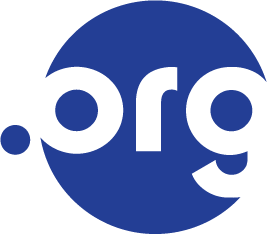


|
||
|
||
Recently we teamed up with the Non-Commercial Users Constituency (NCUC) to express our concern to ICANN that the rights and needs of end-users are taken into account in the discussion of Internationalized Domain Names (IDN). Namely, IDNs are to be seen as a technical measure to allow for multi-lingual direction navigation of the Internet and not used as a tool to control access, impose censorship or limit freedom of expression online. Ultimately, each and every one of us, privileged enough to participate in the ICANN process in some way shape or form, does (or should) endeavor to represent the needs of the Internet end-users around the globe, and not simply our own political, or commercial self interest. I don’t purport to have the solution, but I think it is incumbent on all of us, especially those in the decision making capacity to simply ask the question: “Is this right for the welfare of the Internet user?”
Since the topic of Internet control is quite relevant these days, I wanted to post the full letter to ICANN.
Post by Alexa Raad, CEO, .ORG, The Public Interest Registry, Inc.
July 29, 2008
Dr. Paul Twomey, President
ICANN
4676 Admiralty Way, Suite 330
Marina del Rey, California 90292-6601
Dear Dr. Twomey:
Re: A Statement on Internationalized Domain Name Implementation
The deployment of Internationalized Domain Names (“IDN”) should be seen as a technical measure to allow for multi-lingual use of the internet, and not used as a tool by governments to control access, impose censorship or limit freedom of expression online.
In developing IDN policy, ICANN is urged to carefully distinguish the true needs of Internet users from the interests of those who might claim to represent them politically.
If ICANN solely considers a government’s claims for specific IDN needs and pays insufficient attention to the needs of users, it may enable governments to restrict end-users’ access to the Internet by imposing on them a specific language and script. An oppressive government might exert control over Internet access by adopting laws or pricing policies that limit end user accessibility to Internet content outside a specific IDN. In such a case, the implementation of an IDN string would impede rather than enhance Internet accessibility. We must ensure that IDN implementations do not make it easier for an oppressive government to censor and control user access.
It is critical that ICANN consider the specific IDN needs of end-users and also the potentially oppressive results that IDN implementation might have for some end-users. If some governments wrongfully manipulate IDN implementation as a means of validating their oppressive control of Internet users, then implementing such IDN strings will fail to fulfill the duty of ICANN to be a steward of the administration of the Internet and protector of the Internet user.
As the Internet becomes ubiquitous, nothing is more critical than ensuring the security and stability of the Domain Name System (“DNS”). ICANN is urged to verify that the operator of any new IDN TLD be fully committed and legally bound to maintaining an Internet that is open, interoperable and globally accessible. Inherent in ensuring adherence to this principle is the need to consider the proposed Internet Registry practices of any new IDN TLD operator. Criteria should be developed to ensure that any new registry operator will not reduce Internet freedom or impose burdensome restrictions, whether political or economic, on Internet users.
Respectfully submitted,
Alexa Raad
CEO, .ORG, The Public Interest Registry, Inc.
Dr. Milton Mueller
Chair, ICANN Non Commercial Users Constituency
cc: Denise Michel, VP of Policy Development, ICANN
John Jeffrey, General Counsel, ICANN
Kurt Pritz, Senior VP, Services, ICANN
Craig Schwartz, Chief gTLD Registry Liaison, ICANN
Sponsored byCSC

Sponsored byIPv4.Global

Sponsored byWhoisXML API

Sponsored byVerisign

Sponsored byRadix

Sponsored byVerisign

Sponsored byDNIB.com
